Are you thinking about adding more occupants to your rental property? Whether it's a family member, friend, or partner, navigating the rental application process for additional occupants can seem daunting. Fortunately, with the right letter template, you can clearly communicate your intentions to your landlord while ensuring all necessary information is included. Join us as we explore tips and a sample letter that will make your application stand out!
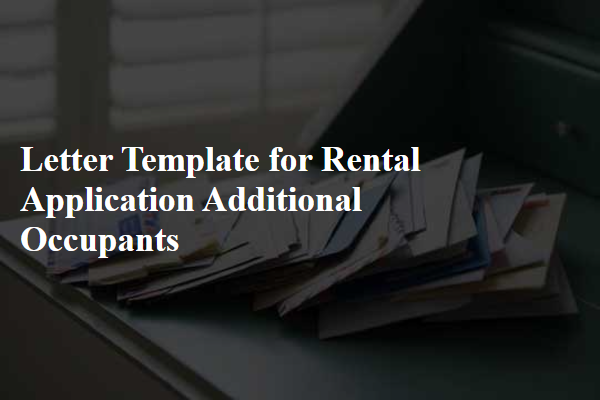
Applicant and Co-Applicant Information
The rental application process requires detailed information about all potential tenants residing in the property, such as name, age, and relationship to the primary applicant. Including additional occupants may increase the total occupancy; for instance, a three-bedroom apartment located in downtown Seattle could house up to six individuals, depending on the landlord's policies. Information regarding employment status, income level, and personal references for each occupant is essential, ensuring the landlord can assess the overall tenant profile. Clarifying pet ownership or specific needs can also be vital in gaining landlord approval for additional occupants, which may differ across various rental agreements and housing regulations.
Property Details and Address
When considering a rental application with additional occupants, property details hold significance, including the location and terms of occupancy. The property address, such as 123 Maple Street, Springfield, serves as a crucial identifier for the rental agreement. Specifics like the number of bedrooms, bathrooms, and amenities also play an important role in determining suitability for additional occupants. Noting nearby schools, parks, and public transport options enhances the understanding of the property's accessibility and community integration, influencing the overall appeal for prospective tenants. Furthermore, highlighting any included utilities or shared facilities may impact the decision-making process for applicants seeking to accommodate more individuals.
Additional Occupants' Information
Additional occupants in a rental property can significantly influence leasing agreements. The inclusion of family members or cohabitants typically requires disclosure of personal details such as full names, ages, and employment status. For example, a couple moving into a two-bedroom apartment may need to provide pertinent information about each individual, including their income levels and rental history, to verify their ability to meet lease obligations. Furthermore, any children or pets residing in the unit should also be declared, as they can impact tenant responsibilities and potential fees stipulated in the lease agreement. It's crucial for landlords in urban areas like New York City or Los Angeles to assess this information, ensuring compliance with tenancy laws and occupancy limits that vary by location.
Consent and Acknowledgment
A rental application for additional occupants requires explicit consent and acknowledgment from both current tenants and prospective occupants. This document should detail the names of original tenants, the prospective occupant's name, rental property address (including street, city, and zip code), and rental agreement terms (duration, monthly rent). It should also outline any specific requirements mandated by the landlord or property management regarding background checks, income verification, and occupancy limits. Furthermore, both current tenants and prospective occupants must agree to abide by property rules and regulations, which may include noise restrictions and maintenance responsibilities. This acknowledgment ensures that all parties understand their rights and obligations under the lease agreement while maintaining a clear line of communication with the landlord.
Contact Information for Follow-Up
When filling out a rental application for additional occupants, ensure to provide detailed contact information, including full names, phone numbers, and email addresses for each individual applying. Additionally, specify the relationship of each occupant to the primary applicant, such as spouse, child, or roommate. Mention any pertinent information required by the landlord, such as employment details or references, to facilitate the screening process. Clear and organized contact information ensures efficient communication, fostering transparency and trust between tenants and property owners.
Letter Template For Rental Application Additional Occupants Samples
Letter template of rental application for increased household occupancy.
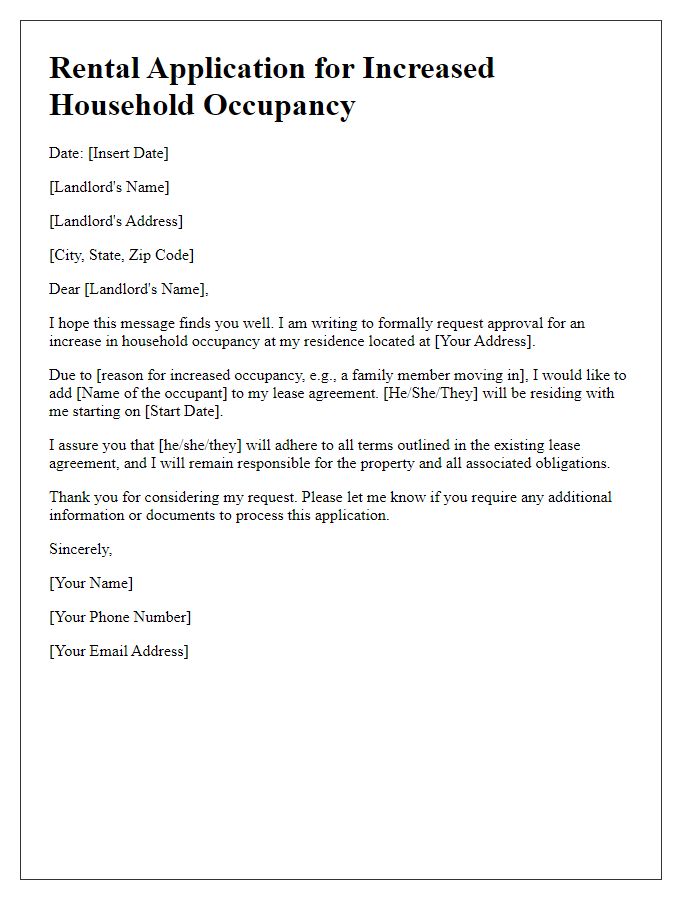
Letter template of rental application to accommodate guests as residents.
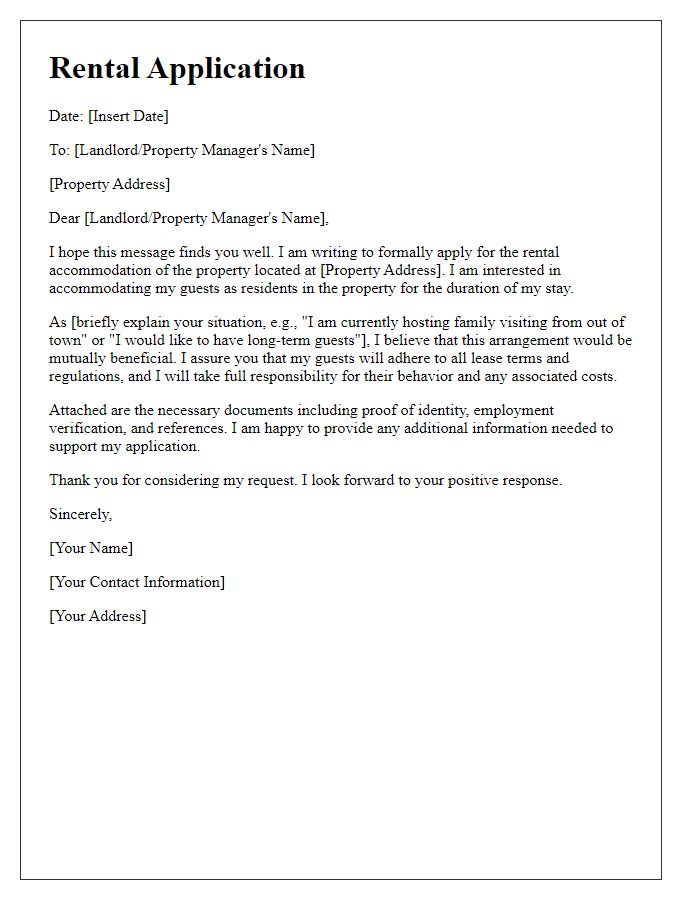
Letter template of rental application for permitted additional occupants.
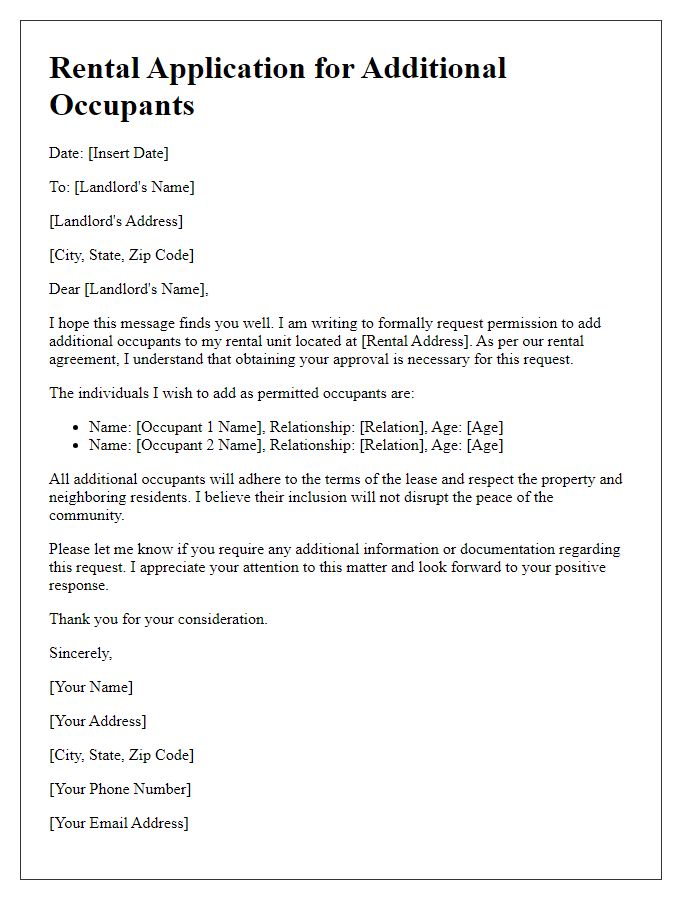
Letter template of rental application for altering lease to include new tenants.
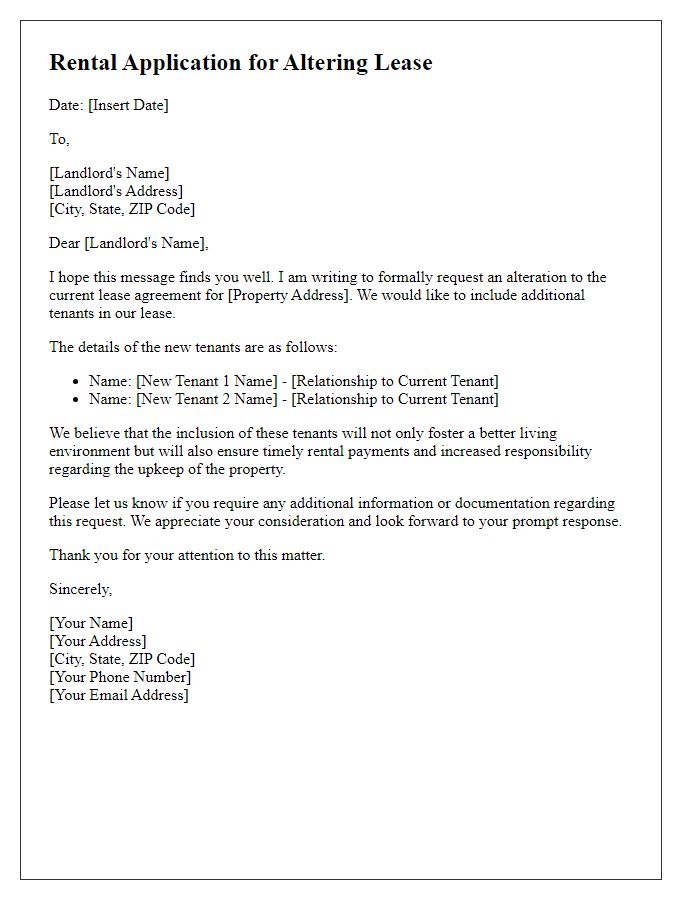

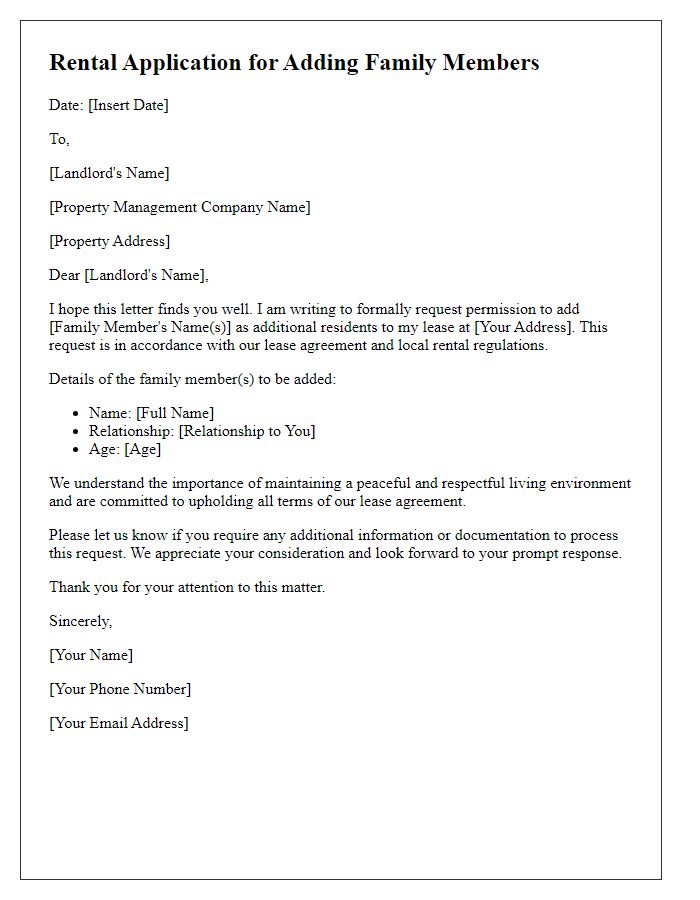
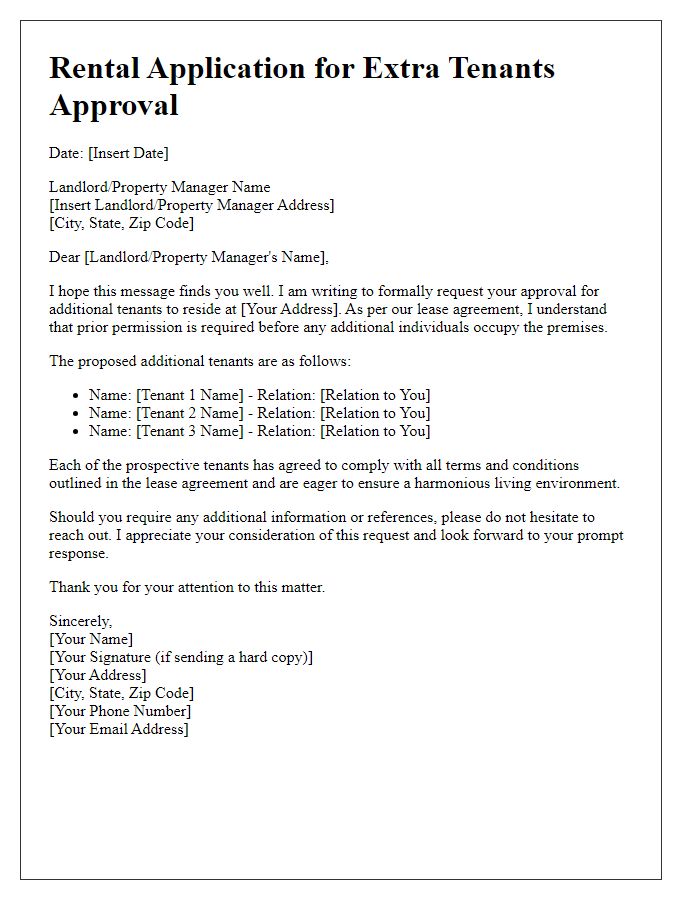
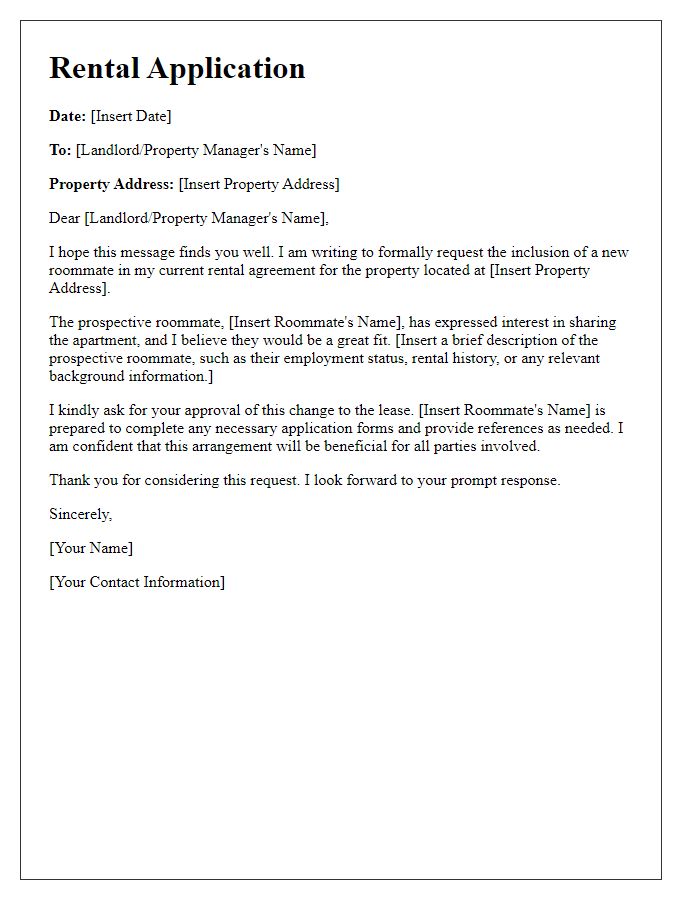
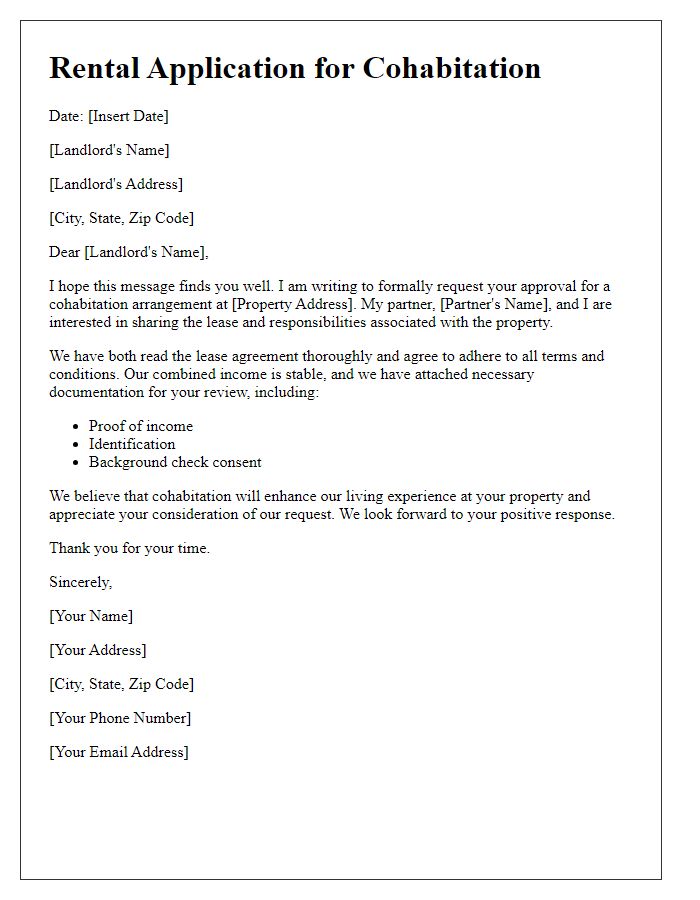
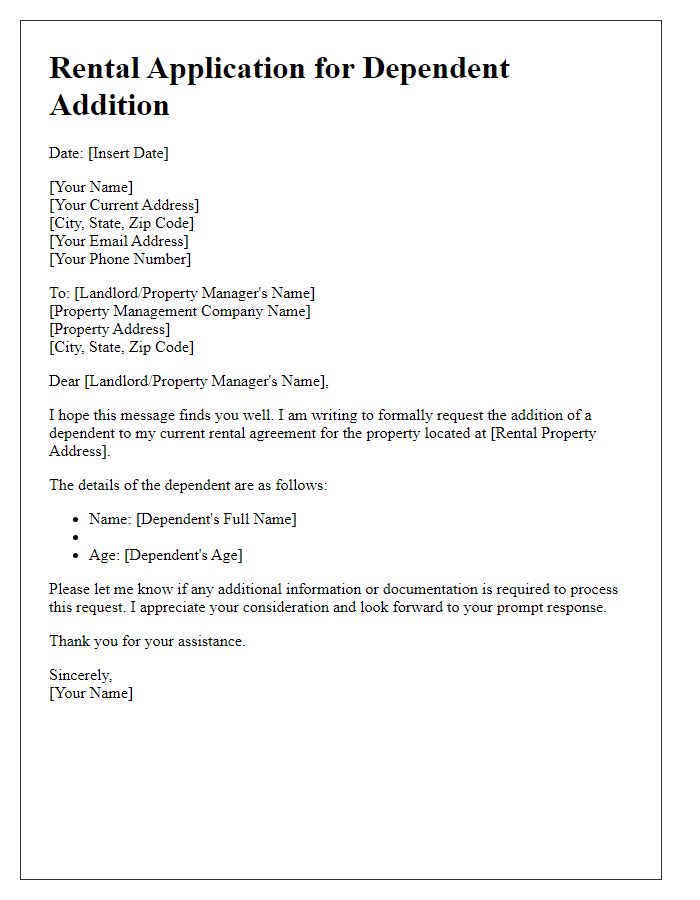
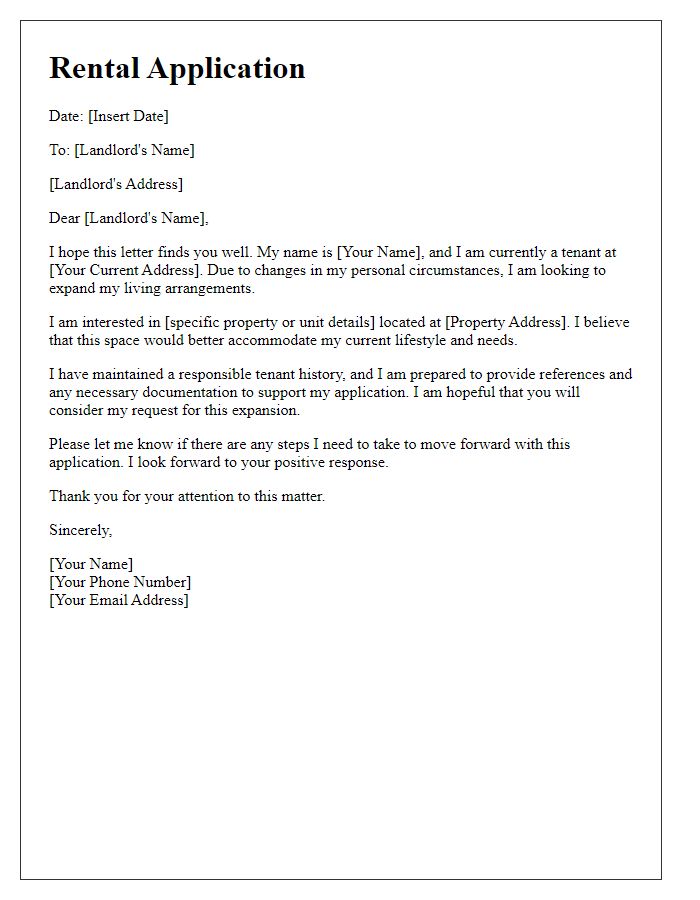

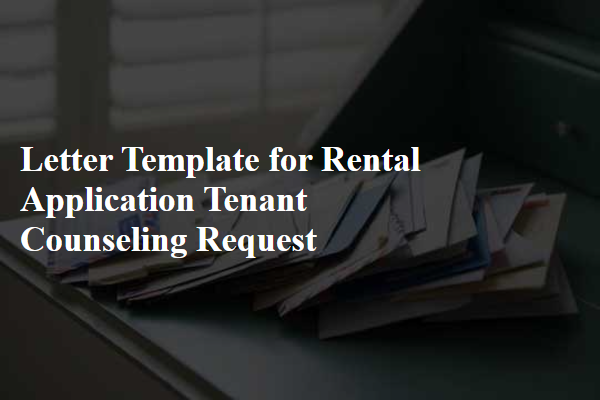
Comments